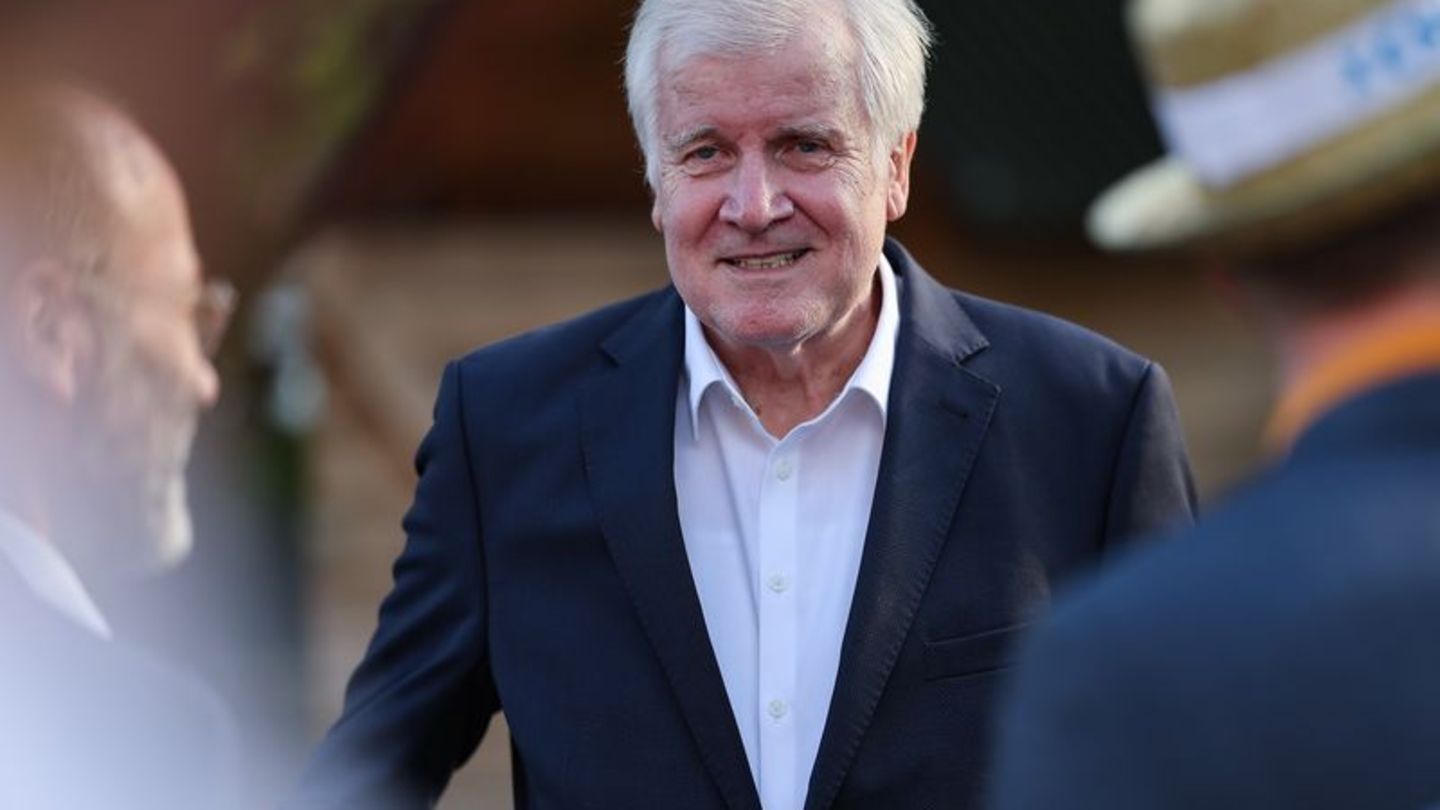Committee of Inquiry
Seehofer, Scholz and Merkel testify in the Afghanistan Committee
Copy the current link
How the federal government organized the evacuation from Kabul in crisis mode in August 2021 is not recommended to be repeated. A committee is now questioning Horst Seehofer as a witness.
State secretaries from various ministries who regularly discuss the current situation but do not make any decisions. An ongoing conflict between the Interior Ministry and the Foreign Office that has remained unresolved for months. These are just two of several structural problems that the Bundestag’s Afghanistan investigation committee uncovered.
The committee, which examines the circumstances of the hectic German evacuation from Kabul in August 2021 and the acceptance of Afghan local staff, always meets on Thursdays during meeting weeks. So far, public interest has been manageable – probably also because new crises with the Ukraine and Middle East wars are dominating the headlines.
Committee interviews former members of the last Merkel cabinet
With the questioning of former Federal Interior Minister Horst Seehofer (CSU) as a witness this Thursday, the taking of evidence is slowly coming to an end. According to Seehofer, the MPs, who are ultimately supposed to write a report with recommendations for more efficient processes in crisis situations, want to interview several former and current cabinet members by Christmas. These include – as of now – Chancellor Olaf Scholz (SPD), former Chancellor Angela Merkel (CDU), former Defense Minister Annegret Kramp-Karrenbauer (CDU) and former Foreign Minister Heiko Maas (SPD).
Seehofer will probably have to answer questions above all about the last deportations to Afghanistan that he pushed before the Taliban came to power in Kabul. The MPs also want to know from the political pensioner why the ministry he headed at the time insisted on extensive security checks when accepting local Bundeswehr employees and former employees of other German institutions from Afghanistan in the summer of 2021. This slowed down the recording process significantly.
Complex test or quick admission?
Although the Foreign Office insisted until the last minute on keeping the German embassy in Kabul open, it spoke out in favor of a simplified admission procedure for local staff with a visa being issued upon arrival.
In June 2021, there was a query among the various federal government departments to find out how many local staff have worked for the various German institutions since 2013 – this period was set by Merkel – and were therefore theoretically eligible for admission. The Foreign Office initially registered 59 Afghans, the Defense Ministry registered 1,300 local employees with employment contracts with the Bundeswehr, and the Development Ministry registered more than 3,500 former and current local employees. The Interior Ministry estimated that since some had already received approvals, a maximum of 70 further applications could be expected.
As a spokesman for the Federal Ministry of the Interior reported upon request, the federal government has enabled the entry of over 36,000 Afghans at risk, including their family members, into the ongoing admission process from Afghanistan. As part of the federal admission program, 3,082 Afghans including their relatives have currently been accepted, 682 of whom have now arrived.
“In particular, it should be ruled out that people who could pose a threat to public safety and order are admitted,” said a spokeswoman for the Ministry of the Interior. According to them, these checks have also included pre-entry interviews since June 2023. To the knowledge of the Federal Government, there have so far been no cases in which people from the federal admission program for Afghanistan entered the country despite security concerns and doubts. If such concerns arise, the acceptance letter will be revoked, “so that the basis for issuing a visa for entry no longer applies,” said the spokeswoman.
The federal government is also not aware of any cases in which people who came from Afghanistan via the admission programs “were classified in Germany as a threat or relevant person in the area of politically motivated crime – religious ideology – or are assigned to the Islamist spectrum of people.” the speaker when asked. The police speak of a “threat” when they describe people who they believe are responsible for serious, politically motivated crimes or even terrorist attacks. The “Islamist spectrum of people” is a category used by the Federal Office for the Protection of the Constitution.
The Greens and the FDP were in opposition on August 15, 2021, when the Taliban took the Afghan capital with virtually no resistance. The Green politician Sara Nanni asked Miguel Berger, then State Secretary in the Foreign Office, in a committee meeting what decisions the State Secretaries of the various ministries made in their rounds on Afghanistan at the time. His answer: “Well, it’s not the case that the operative part of a meeting of state secretaries results from the fact that you end up saying: one, two, three, but rather that you talk to each other and develop a common understanding of a situation.”
Witness calls the group of state secretaries an “informal committee”
When the FDP MP Ann-Veruschka Jurisch wanted to know from the then State Secretary in the Development Ministry, Martin Jäger, whether the group had made any decisions at all or – in the event of problems – raised them to the ministerial level, he replied: “That was not a committee with a decision, where there were draft resolutions.” He also couldn’t remember a formal referral decision to the ministerial level. His conclusion: “It was an informal committee.”
From Jurisch’s point of view, these are findings that speak in favor of the creation of a National Security Council, which her party has been calling for for a long time. “Clear decision-making paths and responsibilities in security policy are absolutely necessary,” says the FDP politician. And: “A turning point also means learning from past mistakes.”
Organized irresponsibility again?
The analysis is reminiscent of an investigative committee from the previous electoral period. After the terrorist attack on the Berlin Christmas market in 2016, it became known that the later attacker Anis Amri was discussed more often than almost any other radical Islamist in the Joint Terrorism Center (GTAZ) of the federal and state governments, but without any action being taken. The rejected asylum seeker from Tunisia frequented Salafist mosques and sold drugs. He was known to authorities by several aliases.
The Green Party domestic politician Irene Mihalic later assessed, after hearing numerous witnesses in an investigative committee, that there was “a kind of organized irresponsibility” in the GTAZ at the time. Security circles say that there have been some changes in the GTAZ since the attack on Breitscheidplatz – such as a better definition of clear responsibilities for individual cases and a closer coordination of operational measures. More detailed minutes are now being kept at meetings.
dpa
Source: Stern
I have been working in the news industry for over 6 years, first as a reporter and now as an editor. I have covered politics extensively, and my work has appeared in major newspapers and online news outlets around the world. In addition to my writing, I also contribute regularly to 24 Hours World.




